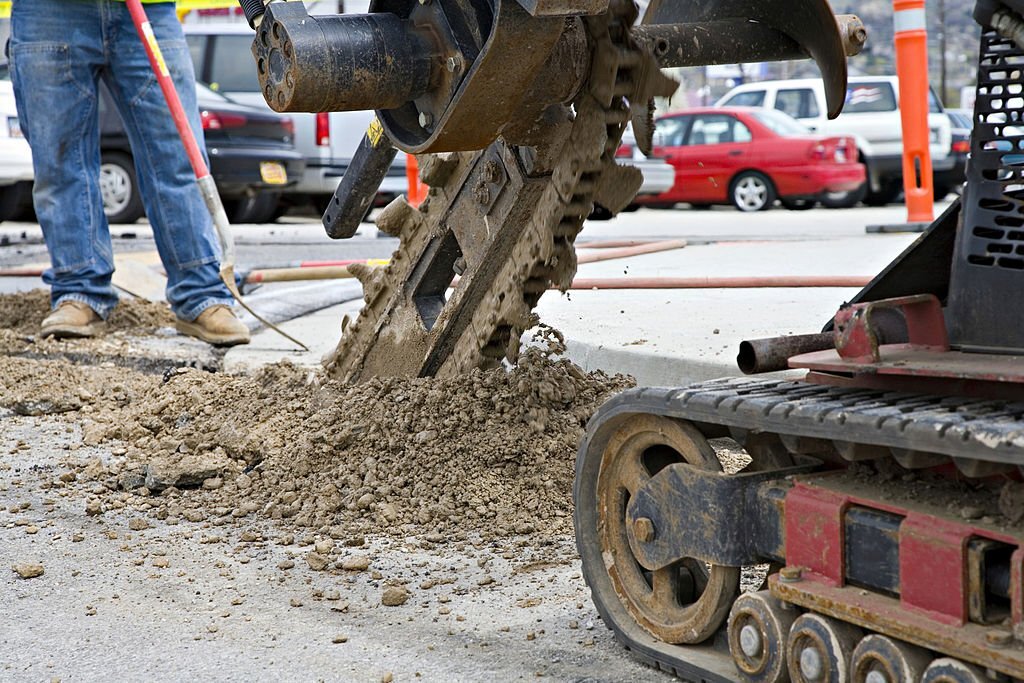
Trenchers are indispensable machines in road construction projects, serving a critical purpose in excavating trenches. These powerful pieces of equipment play a pivotal role in the construction process, facilitating the installation of drainage systems, utility lines, and other underground infrastructure. By understanding the purpose of trenchers in road construction, we can appreciate their significance in creating a solid foundation and infrastructure for safe and functional roadways.
This comprehensive guide aims to describe the purpose of trenchers in road construction. We will explore the various applications, including the excavation of trenches for drainage systems, utility installation, and underground infrastructure. By delving into the capabilities and benefits of trenchers, construction professionals can make informed decisions, optimize trenching operations, and contribute to the successful completion of road construction projects.
I. Excavation of Trenches for Drainage Systems :
- Efficient Water Management: Trenchers are used to excavate trenches for drainage systems, allowing for the efficient management of water flow on road construction sites. These trenches act as channels, directing water away from road surfaces, preventing flooding, and reducing the risk of structural damage. Trenchers enable the excavation of trenches of various sizes and depths to accommodate the specific requirements of the drainage system.
- Precise Grading and Sloping: Trenchers contribute to precise grading and sloping of trenches for drainage systems. They ensure that trenches have the appropriate incline and slope for effective water flow. Proper grading and sloping help maintain the integrity and functionality of the drainage system, preventing water stagnation and ensuring the smooth movement of water away from the road surface.
II. Utility Installation :
- Efficient Utility Placement: Trenchers are utilized for excavating trenches to accommodate the installation of various utility lines, such as water pipes, sewer lines, and gas pipelines. Trenchers provide a precise and efficient method of creating trenches of the required dimensions to accommodate utility lines, enabling the smooth installation of these vital systems.
- Minimized Disruption: Trenchers minimize disruption during utility installation by efficiently excavating trenches with minimal disturbance to the surrounding environment. Compared to traditional manual digging methods, trenchers significantly reduce the time and effort required for trench excavation, allowing for quicker installation and minimizing inconvenience to road users and nearby residents.
III. Underground Infrastructure :
- Cable and Conduit Installation: Trenchers are utilized in road construction projects to excavate trenches for the installation of underground cables and conduits. These trenches provide the necessary space for laying electrical cables, communication lines, or fiber optic cables, ensuring the efficient functioning of underground infrastructure.
- Fiber Optic Network Expansion: Trenchers play a crucial role in expanding fiber optic networks. They are used to create trenches for laying fiber optic cables, facilitating the growth of high-speed internet connectivity and enabling efficient communication systems. Trenchers provide a reliable and efficient method of trench excavation for the installation of fiber optic infrastructure.
IV. Benefits of Trenchers in Road Construction :
- Enhanced Efficiency and Productivity: Trenchers significantly improve efficiency and productivity in road construction projects. With their powerful cutting mechanisms, these machines can quickly and accurately excavate trenches of various dimensions, reducing the time and labor required for manual digging. Trenchers enable construction professionals to complete trenching operations efficiently, optimizing project timelines and reducing costs.
- Precise and Consistent Trenching: Trenchers ensure precise and consistent trenching, adhering to specified dimensions and requirements. This accuracy helps maintain the integrity and functionality of drainage systems, utility lines, and underground infrastructure, minimizing the risk of future issues and ensuring the longevity of road construction projects.
- Minimized Disruption and Environmental Impact: Trenchers minimize disruption to the surrounding environment during trench excavation. Compared to manual digging, trenchers create less disturbance, reducing noise levels, minimizing dust, and minimizing the impact on nearby ecosystems. This makes trenchers a more sustainable and eco-friendly option for trench excavation in road construction.
Conclusion :
Trenchers play a vital role in road construction projects by efficiently excavating trenches for various purposes, including drainage systems, utility installation, and underground infrastructure. They contribute to efficient water management, precise utility placement, and the expansion of essential networks. By understanding the purpose and benefits of trenchers, construction professionals can make informed decisions, optimize trenching operations, and ensure the successful completion of road construction projects.
The utilization of trenchers in road construction projects enhances efficiency, productivity, and the overall functionality of drainage systems, utilities, and underground infrastructure. By leveraging the capabilities of trenchers, construction professionals can contribute to the creation of safe, functional, and sustainable roadways that benefit communities and ensure a smooth flow of traffic.

